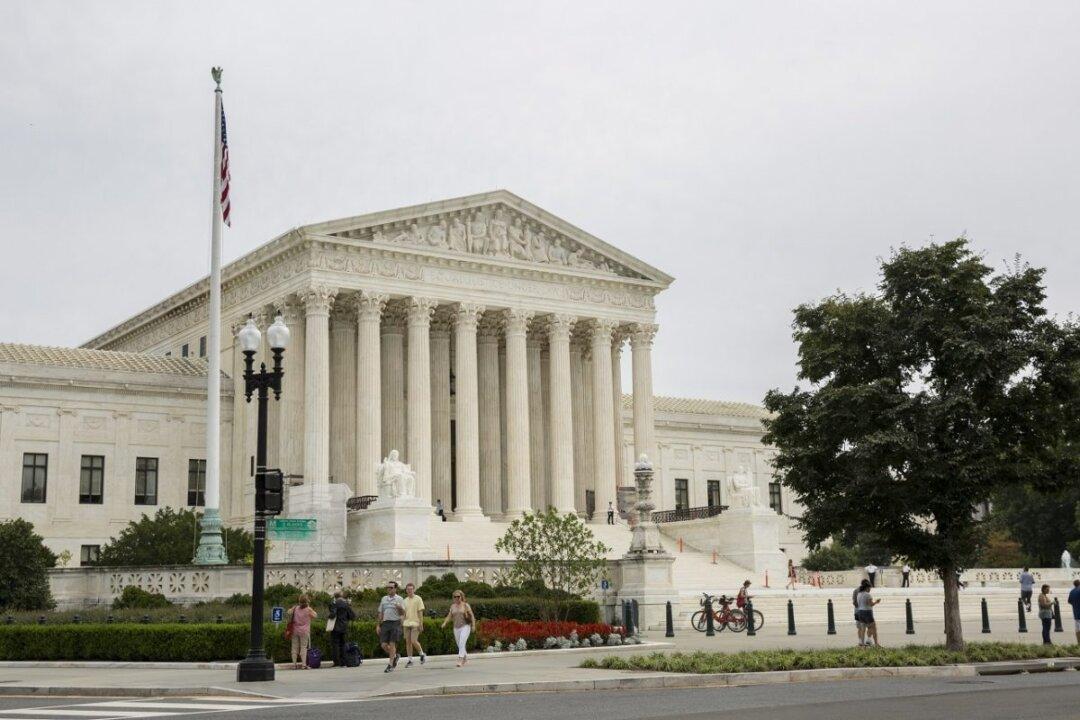WASHINGTON—Civil rights laws don’t protect transgender employees from being fired because of their gender identity, the Trump administration argued in a new filing with the Supreme Court.
The legal brief was filed Aug. 16 in R.G. and G.R. Harris Funeral Homes Inc. v. Equal Employment Opportunities Commission, a lawsuit involving a transgender person, Aimee Stephens, formerly known as Anthony Stephens, who was fired by a Michigan funeral home.





